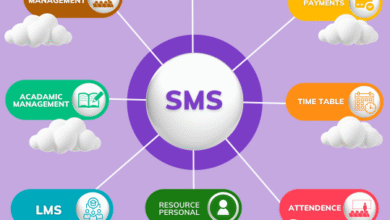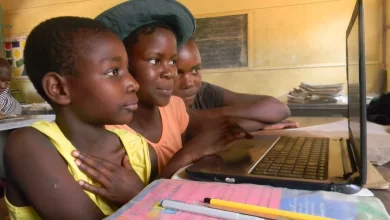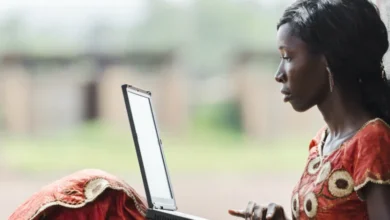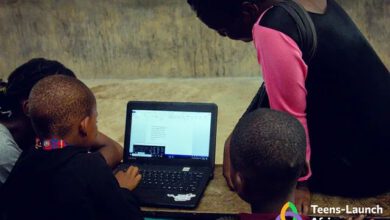Why Tech in Education should Empower, not Replace
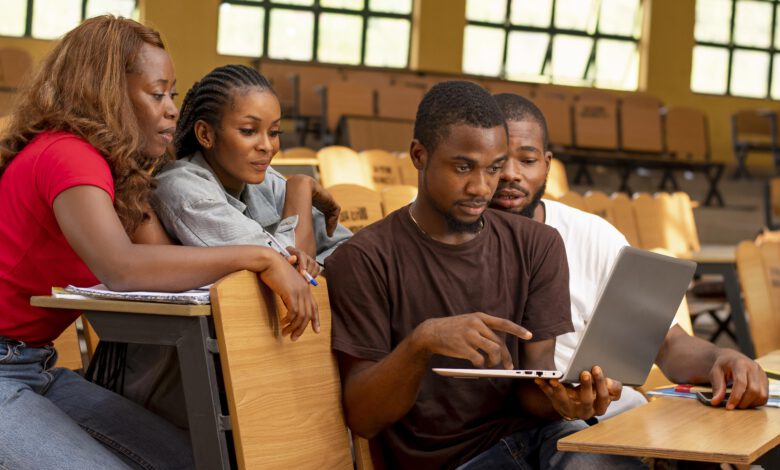
Imagine a classroom where artificial intelligence assists teachers rather than taking over their roles. As Ed-tech adoption surges across Nigeria and beyond, the debates is intensifying whether tech is enhancing learning or sidelining human educators? This article examines the latest initiatives, success stories, and cautionary lessons, focusing on West Africa’s growing digital classrooms and why balance must come first.
Over the years, Africa has witnessed a steady rise in the use of technology in education from mobile learning, digital libraries to smart classrooms. During the COVID 19 lockdowns, over 250 million African students were affected, pushing schools to adopt digital tools especially google classroom with rapid usage. While this shift helped bridge learning gaps, it also raised fears could tech replace teachers? The truth is, technology should be a helping hand not a replacement in a continent where human connection is at the heart of learning, tech must serve as a tool to support not substitute, the teacher’s role. This piece employ why, especially in Africa the need to work hand in hand with educators to truly make a difference in shaping the future of learning.
CURRENT DEVELOPMENT TECHNOLOGY THAT SUPPORT , NOT REPLACE.
In the quiet village of Zanko, in a northern state. A young teacher named Zain wakes up at 5 am each day to prepare for her students. She teaches over 100 children in a cramped classroom with no electricity, limited textbooks, and only a chalkboard. Despite her passion, she often struggles to reach every child especially the ones falling behind.
But everything changed when Zain was introduced to a simple AI-powered lesson planner through a pilot program led and organized by the PTA (Parent Teacher Association Opportunity International. With just a smartphone and intermittent internet, she could now access standard made, curriculum, aligned lesson plans tailored to her students’ learning levels. More importantly, she was able to spend less time preparing and more time connecting and interacting with her students.
Teacher Zain also spark up the interest of his students. I could recalls one particular boy, Musa, who rarely spoke in class. But after she used an interactive digital lesson on storytelling supported by visuals and local context Musa finally raised his hand, which means his confidence also Increased and one faithful Monday he shared a story that made the whole class laugh. That moment according to teacher Zain, reminded her why tech should support teachers, not take their place.
Teacher Zain story isn’t unique it’s just a reflection of what’s happening across Africa. AI and digital tools are being introduced not to replace but:
- Reduce prep time through automated lesson planning
- Give feedback faster with real time assessment tools
- Improve classroom participation, even in large or underserved settings
In regions where one teacher can have over 80–100 students, technology like this becomes a lifeline not a replacement.
Why It Matters
Ethical AI adoption: With 76% of teachers globally reporting inadequate AI training , Africa’s coordinated efforts ensure technology is used responsibly.
Bridge large class sizes: AI tutors like in West Africa reached hundreds of students, showing scalable impact without undermining teachers .
Real classroom pilots: UNICEF’s LPP uses evidence based approaches Map, Match, Test to ensure tools truly follow local teacher needs .
Infrastructure & equity: Challenges like internet and power remain, but initiatives include offline and multilingual tools to serve rural and marginalized learners, so tech can supplement, not supplant, human instruction .
References: UNICEF LPP at eLearning Africa 2025
KEY SIGNIFICANCE
- Bridging the education gap in rural Africa by supporting not sidelining teachers
- Human centered innovation that respects the emotional and cultural dynamics of classrooms
- Evidence of real results, like improved student engagement and learning outcomes.
- It humanize the purpose of EdTech, not to replace teacher but to reveal uplift potential.
- It shows that with the right tools, teachers can become even more effective heroes in their students lives.
REACTIONS, IMPACT AND EXPERT INSIGHT
The introduction of technological tool in African classrooms has sparked a wave of cautious optimism among educators, tech developers, and community leaders.
We don’t see technology as a threat, we see it as a lifeline,” says Mrs. Loveness Mwansa, a head teacher in Zambia.
My son now teaches me what he learns from the AI tutor. Before, he was quiet and unsure. Now he wants to become a math teacher someday, says a parent during PTA meaning.
BROADER IMPACT AND IMPLICATIONS
Education Ecosystem: These tools reduce the pressure on teachers, allowing them to spend more time engaging students, not just managing chaos. This could revive teacher morale and reduce burnout across the continent.
Economy and Employment: As students like Musa gain stronger foundational skills through enhanced learning, the long term benefit is a more skilled future workforce, a key to Africa’s economic growth in tech, health and science sectors.
Equity in Learning: In remote or low-income communities where textbooks and tutors are rare, digital tools are helping to level the playing field, ensuring that brilliance isn’t lost due to circumstance.
Still, experts warn against over-reliance on AI or software.
The journey doesn’t end with Musa’s story
Educational startups are seeking strategic partnerships with Ministries of Education to expand their reach to public schools across Southern Africa. Meanwhile, U-Lesson is exploring offline solutions to bring content to areas with limited internet access.
The AI tutor is showing promising learning gains and moving into Phase 2 testing across West Africa, with support from global education funds and local Ed-tech labs.
More importantly, funding bodies and governments are starting to realize that homegrown African solutions not imported ones are best equipped to solve Africa’s unique educational challenges.
This shift aligns perfectly with Techdom Africa’s broader themes:
Local Innovation: These tools are built by Africans, for Africans addressing cultural, language,
and classroom realities head-on.
Sustainable Development: By empowering teachers, not replacing them, we strengthen community based education and reduce reliance on costly foreign programs.
Digital Inclusion: With tools available via mobile, even students in rural and underserved areas are gaining access to quality learning one lesson at a time.
The bigger picture now is Africa stands at a powerful crossroads: we can choose to build an education system where tech uplifts humanity.
The tools are ready. The teachers are willing. The time is now.
If you are an educator, policymaker, parent or innovator lean in. Support local Ed-tech, amplify stories like Musa’s and invest in solutions that bridge digital gaps rather than widen them.
Let’s build an education revolution where technology strengthens every voice that is willing to learn and gain knowledge.


